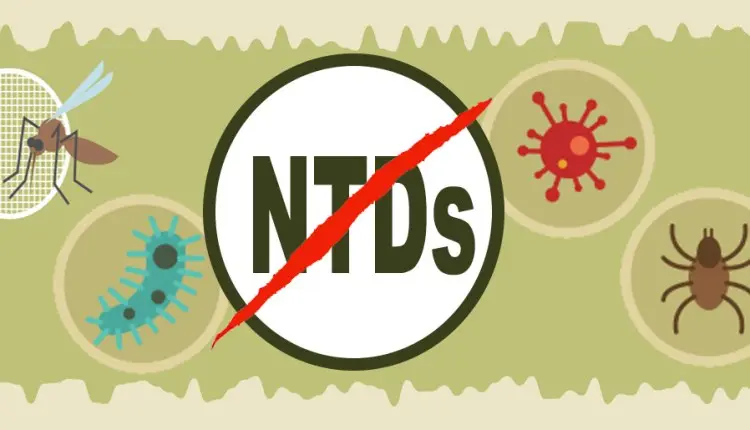By Muhammad Amaan
The Federal Government says Nigeria now ranks among the world’s leading nations in efforts to control and eliminate Neglected Tropical Diseases (NTDs), reflecting significant national and global health progress.
Dr Fatai Oyediran, National Coordinator, NTD Division, Federal Ministry of Health and Social Welfare, disclosed this during a high-level advocacy meeting with health commissioners and FCT officials on Monday in Abuja.
He highlighted Nigeria’s remarkable achievements in controlling Onchocerciasis, trachoma, and other NTDs, acknowledging major support from international partners such as Sightsavers, Reaching the Last Mile, and other development organisations.
Oyediran said that more than 30 million Nigerians had been removed from NTD treatment programmes, out of an initial 91 million treated nationwide, showing strong progress in disease control and management.
According to him, about 39.5 million people have also been cleared from Lymphatic Filariasis treatment lists, reducing the number of those at risk and improving public health indicators significantly.
Dr Oyediran noted that Nigeria had achieved an 84 per cent reduction in trachoma cases, adding that the country now served as a model for other nations battling neglected tropical diseases globally.
“We are moving steadily towards the 2030 target for NTD elimination, and with sustained momentum, Nigeria will be among countries to achieve total elimination of these diseases,” he stated.
Minister of State for Health and Social Welfare, Dr Iziaq Salako, commended the achievements but urged stronger budgetary commitment from states to sustain the country’s progress towards total elimination of NTDs.
He emphasised that controlling NTDs was critical to achieving Universal Health Coverage by 2030, attaining Sustainable Development Goal 3, and breaking the cycle of disease-driven poverty nationwide.
Dr Salako appealed to state health commissioners to prioritise NTDs in their budgets, mobilise domestic funding, and integrate disease elimination activities with other health interventions for cost-effective implementation.
“Let us not allow neglected tropical diseases to result in neglected people,” Salako said, urging collaboration across all health sectors to protect vulnerable populations and sustain national progress.
Dr Sunday Isiyaku, Executive Director, Reaching the Last Mile Fund, described the withdrawal of U.S. funding as a wake-up call for Nigeria and others to develop sustainable, homegrown funding strategies.
He said the challenge had become an opportunity for governments to take ownership, with several states now pledging support and committing funds towards continued NTD elimination initiatives nationwide.
“What we need now is momentum and collaboration. After years of neglect, we must generate the resources necessary to end these diseases permanently,” he added.
Stuart Halford, Director of Advocacy and Resource Mobilisation, Uniting to Combat NTDs, called for Nigeria to transition from political commitment to concrete domestic funding to secure long-term success.
“Nigeria’s achievements are impressive, but sustained progress requires predictable and nationally owned financing mechanisms,” Halford noted, stressing the importance of accountability and local resource mobilisation.
Chairperson of the Nigeria Health Commissioners Forum, Dr Oyebanji Filani, represented by Dr Amina El-Imam, reiterated the forum’s commitment to driving local resource mobilisation for NTD elimination.
“I urge all commissioners to prioritise NTD funding in subsequent budgets and leave this meeting re-energised to deliver the resources required to end these diseases,” he said.




